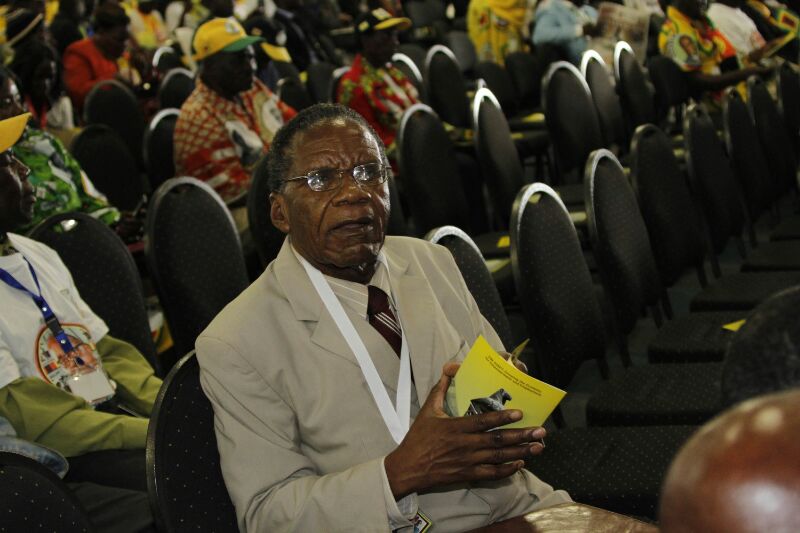
BY DEMETRIA MANYONGA
In a moment of separation
Wild wishes blouse out of your imagination
And clung on to the rest of my life
Like buds
Waking up from the thin skin of a rootless log in the river.
I know, l must go, leaving you still as
Unsatisfied and shameless as a mermaid
- Chamisa under fire over US$120K donation
- Mavhunga puts DeMbare into Chibuku quarterfinals
- Pension funds bet on Cabora Bassa oilfields
- Councils defy govt fire tender directive
Keep Reading
Scantily clad in beds of liquid,
Your heart restlessly sashed
To the molten core of the earth
To the secrets of the fire and water,
With meridian girdles of rainbow
THE above stanza is from a one of the poems titled Holding On, in a love and romance poetry collection called Rupise, recently published by the chief executive officer of the Zimbabwe Media Commission (ZMC), Tafataona Mahoso.
Mahoso is a former media trainer, columnist and contributes regularly to the State media.
Rupise is a collection of poems which talks about the historical background of how people lived in the pre-colonial era as well as the post-colonial era.
The poetry collection also uses rich images and metaphors to tell a sensitive story of a young man’s triple separation from his mother, girlfriends and his home when he goes overseas to study and have another home in a foreign land for two decades.
However, for the author to suit in the new country, he has to exchange his mother, girlfriend and home with those of the foreign land.
Rupise revolves around the fact that fundamental resources were commanded by white Rhodesian settlers as an exclusive racial resort and renamed just Hot Springs. Its elemental magnet at the centre of a cultural field, which was neutralised partly through the loss of its name.
The poems in the collection also carry political connotations, though the writer dedicates much of what he writes towards love and romance.
In his narrative, Mahoso portrays Rupise as an elegant gorgeous female cousin of his mother who enabled them as pubescent boys to go swimming naked with pubescent girls in river pools without anyone being sexually molested or raped.
He presents Rupise as the only one with the charm and beauty to wrench boys from their attachment to mother’s love and to stick to them.
The gorgeous Rupise, who is described as being only few years older than the adolescent and she was attractive enough for the guys to have a crush on, had remained selfless and disciplined enough not to take advantage of the young boys with sexual vulnerabilities.
They moved slowly and smoothly from playing match-making games to somewhat serious love relationships.
In the collection, Mahoso recalls falling in love with a girl called Mwapaona, whose name aligned well with his name Tafataona.
Mahoso describes Rupise’s relationship with water as having gone far beyond swimming naked in river pools and what was referred to as “responsive sex education” that included early teachings in biodiversity.
This was strengthened by the fact that her mother was a potter and midwife, while her father was a medicine man; meaning both parents dedicated their lives to biophilic occupations, which were centred on land, water and powers of sunlight.
The author vividly remembered how Rupise would take them to skinny dripping with girls who came from their association with water and leading.
The poem Rupise speaks of the beauty of Zimbabwe, its resources and how people exercise their right to freedom of expression.
It also talks about how the late Vimbai Gukwe Chivaura talked about turning the reclaimed land into indigenous fields. If one is to read Mahoso’s first book; Footprints About the Bantustan, he or she will understand that the original lovers who were represented in the liberated Rupise were under Rhodesian apartheid control when the young man left Rhodesia.
The poem Rupise Three is not that political, as one may be tempted to conclude that Mahoso had abandoned his politics for love, even though the meaning of the word love had been politicised with vengeance as the writer states.
The poems in Rupise celebrate the love between men and a woman and how both their voices are respected.
The poems also speak about how a mother has influence in her children as the attachment between a mother and her child starts when the mother is pregnant, as the bond between the two starts to build.
The poetry collection also talks about women’s oppression, sexual abuse and patriarchy, pointing out the view that Zimbabwean males view women as inferior to men.
The collection also talks about the spread of HIV and Aids .It talks about how men were told to respect their women and never to force themselves on them.











